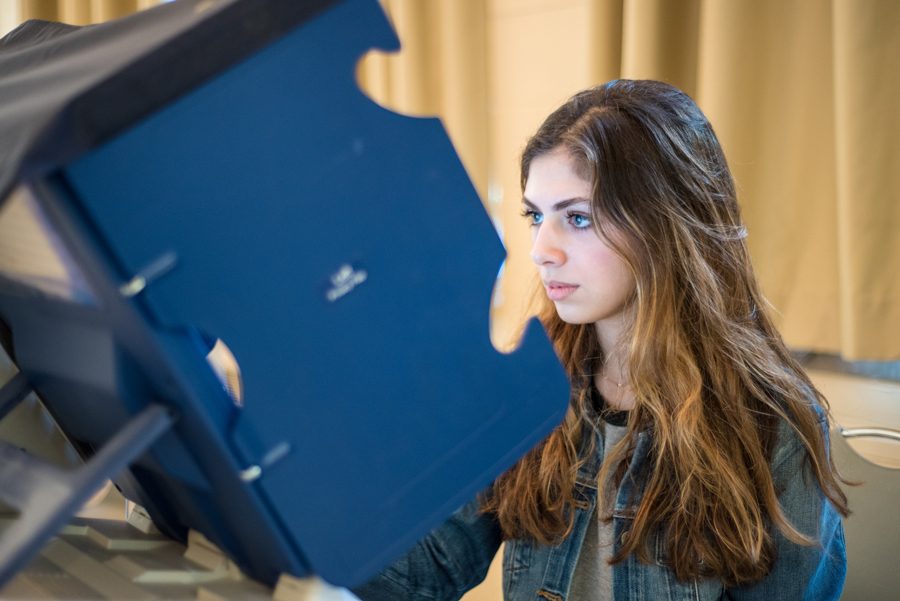What exactly is equality? Students tackle the notion before the upcoming midterms
Colin Boyle / Daily Senior Staffer
A poll booth. Ahead of the midterm elections, student tackle the notion of equality.
October 15, 2018
Ahead of the November midterm elections, Daily reporters are speaking to students about issues they’ll take to the polls. In this article, students take on the importance of equality, and what it means to them.
You’ve all heard it: equality. What does it actually mean?
As the midterm elections draw nearer, voters will certainly hear candidates’ pleas for all types of equality — racial, economic, gender and otherwise. The Daily spoke with students to see what the notion means to them.
Weinberg sophomore Erica Henschen said her mother’s immigration to the United States has motivated her to take positions on issues like marriage equality and class-based discrimination.
A key argument for pursuing policies promoting equality is that individuals don’t choose the conditions they inherit.
“It’s so hard to explain why equality is important, because I feel like it’s a basic thing people should have,” Henschen said. “I don’t know why some people would think they deserve any more or less than other people because of what they were born into. A lot of issues regarding equality have to do with factors you can’t change.”
Thirty-four states have U.S. Senate elections this cycle, while every single congressional district will also hold elections. Students who opt to vote in their home state often request absentee ballots, while others register to vote in Cook County. As the nation reckons with systemic racism and inequality, some students are looking for policies and officials that will tackle them head-on.
Several students said that discrimination is more overt now than it has been in years before.
“There’s definitely room for improvement regarding issues of equality,” said Communication sophomore Pooja Venkatesh. “There’s more prejudice and judgment against groups that wasn’t there before. I had never felt uncomfortable being Indian until the last two years. America is known as the country that values equality, but I don’t think it’s living up to that these past couple years. Hopefully, young people contribute to end that and create a more accepting environment.”
The subject can draw mixed opinions: Should everyone simply be given the same tools for socioeconomic advancement, or should society ensure individuals achieve relatively similar outcomes?
“I believe in equality of opportunity, not opportunity of outcome,” said Communication sophomore Connor Broyles. “But at some point in your life, you have to become responsible for actions you’ve made in your life. Your actions do have consequences that you have to stick with or improve your situation. I don’t believe everyone is a victim.”
Practically, policies aiming for some sort of economic redistribution will cost money, bringing up questions like who should pay and how to raise funds. Though the economy is humming, the government is running one of the largest deficits since 2013.
“There’s a lot of policies that people at this school care about like universal healthcare, social safety nets: all that stuff costs a lot of money,” said McCormick sophomore Logan Goering. “People here who support those policies are less concerned about the cost and more concerned about the human impact.”
Other than Broyles, everyone interviewed said this is the first election they will vote in, despite being old enough to vote in last year’s local elections. According to a study by Portland State University, residents 65 years and older were about 15 times more likely to vote than those between the ages of 18 and 34, who typically had turnout rates in single digits.
“I think everyone should vote regardless of your political affiliation,” said Weinberg sophomore Mackenzie Smith. “I feel like if we are given the opportunity to, unlike some people in the world, we should really take advantage of it… I think individual votes are more powerful than people think. If everyone voted, things would be different.”
Email: [email protected]
Twitter: @bonijos_iahfant


